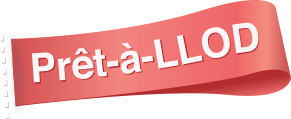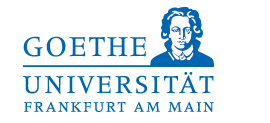7th Workshop on Linked Data in Linguistics (LDL-2020)
Building tools and infrastructures
Marseille, France. Co-located with LREC 2020.
Submission at https://www.softconf.com/lrec2020/LDL2020/
As LREC 2020 is postponed due COVID-19, LDL-2020 will not take place this May. The workshop will take place virtually on June 22nd-23rd.
Since its establishment in 2012, the Linked Data in Linguistics (LDL) workshop series has become the major forum for presenting, discussing and disseminating technologies, vocabularies, resources and experiences regarding the application of semantic technologies and the Linked Open Data (LOD) paradigm to language resources in order to facilitate their visibility, accessibility, interoperability, reusability, enrichment, combined evaluation and integration. The LDL workshop series is organized by the Open Linguistics Working Group of the Open Knowledge Foundation, and has contributed greatly to the emergence and growth of the Linguistic Linked Open Data (LLOD) cloud. LDL workshops contribute to the discussion, dissemination and establishment of community standards that drive this development, most notably the OntoLex-lemon model for lexical resources, as well as standards for other types of language resources still under development.
LDL-2020 builds on the success of the workshop series, incl. three appearances at LREC (2014, 2016, 2018), each with a focus on the relevant topics in the field of LL(O)D. Workshops attracted a significant number of interested participants and acted as a platform for discussions and exchange of opinions. As of 2016, LDL workshops alternate with the stand-alone conference on Language, Data and Knowledge (LDK), which attracted over 200 participants in its two editions. Continuing the LDL workshop series together with LDK is important in order to facilitate dissemination within and to receive input from the language resource community, and LREC is the obvious host conference for this purpose.
LDL-2020 will be supported by the COST Action "European network for Web-centred linguistic data science" (NexusLinguarum) and two Horizon 2020 projects, the European Lexicographic Infrastructure (ELEXIS), and Prêt-à-LLOD, which focuses on providing an infrastructure for linguistic data to be ready to use by state-of-the-art technologies.
Motivation and Topics of Interest
Past years have seen a growing interest in the application of knowledge graphs and Semantic Web technologies to language resources, and their publication as linked data on the Web. As of today, a large amount of language resources were either converted or created natively as linked data on the basis of data models specifically designed for the representation of linguistic content. Examples are wordnets, dictionaries, corpora — research papers describing the creation of these resources were presented at the previous editions of both LREC and LDL. At the same time, the growth of the LLOD cloud is far from over: new use-cases call for new data models and new resources to be created or converted.
However, even though a critical mass of LLOD is already in place, there is still a pressing need of a robust ecosystem of tools that consume linguistic linked data. Recently started research networks and European projects, such as NexusLinguarum, ELEXIS, and Prêt-à-LLOD are working in the direction of building sustainable infrastructures around LRs, with linked data as one of the core technologies.
By collocating the 7th edition of the workshop series with LREC, we encourage this interdisciplinary community to participate in the dialogue on these issues, to present and to discuss use cases, experiences, best practices, recommendations and technologies among each other and in interaction with the language resource community.
The LDL workshop series has a general focus on LOD-based resources, vocabularies, infrastructures and technologies as means for managing, improving and using language resources on the Web. As technology and resources increasingly converge towards a LOD-based ecosystem, we particularly encourage submissions on Linked-Data Aware Tools and Services and Linked Language Resources Infrastructure, i.e. managing, curating and applying LLOD technologies and resources in a reliable and reproducible way for the needs of linguistics, NLP and digital humanities.
Important Dates
16 Feb 2020 28 Feb 2020: submission
13 Mar 2020: notification
02 Apr 2020: camera-ready
11 May 2020: workshop, Marseille (France)
Organizing Committee
- John P. McCrae (National University of Ireland Galway, Ireland)
- Jorge Gracia (University of Zaragoza, Spain)
- Julia Bosque Gil (University of Zaragoza, Spain)
- Maxim Ionov (Goethe University Frankfurt, Germany)
- Christian Chiarcos (Goethe University Frankfurt, Germany)
- Thierry Declerck (DFKI GmbH, Germany)
Please get in contact via ldl2020@linguistic-lod.org






